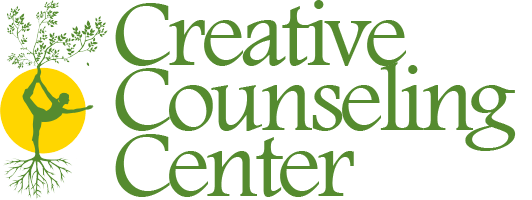Understanding Anxiety: How to Recognize It, Manage It, and Feel Like Yourself Again
Anxiety is a buzzword we hear often, but what does it really look like in everyday life? For some, it’s racing thoughts and panic attacks. For others, it’s a constant sense of unease or overthinking every decision. Anxiety wears many faces and often hides behind a smile.
At Creative Counseling Center, we help clients peel back the layers of anxiety, so they can better understand it, manage it, and reconnect with their inner calm.
What Anxiety Really Is
Anxiety is your body’s natural response to perceived danger. It’s part of our survival system but in modern life, the “threats” are often emotional or mental, not physical. A difficult conversation, public speaking, or even opening emails can trigger the same nervous system response as a tiger in the wild.
You might notice symptoms such as:
· Constant worry or dread
· Restlessness or trouble sleeping
· Physical symptoms like muscle tension, nausea, or heart palpitations
· Difficulty concentrating
· Avoidance of certain people, places, or situations
Common Triggers
Everyone’s anxiety looks different, but some common triggers include:
· Past trauma
· Major life transitions (moving, divorce, job changes)
· Perfectionism or fear of failure
· Social expectations or performance pressure
· Unresolved grief or emotional overwhelm
When these triggers aren’t processed, anxiety can become a daily companion.
Internalizing pain is never good. Avoidance always leads to more problems. When we bottle-up our pain and push it deep down inside our psyche, it takes a toll on our overall health – mind, body, and soul. Oftentimes we find ourselves unable to focus and concentrate, like we’re disconnected. We end up slogging through our daily activities. Showing up and being present are two different things. Walking around with burdens makes us feel like the we have the weight of the world resting on our shoulders. Ouch!
Managing Anxiety: What Helps?
You don’t have to accept anxiety as your “normal.” There are evidence-based strategies and personalized tools that can reduce its impact.
1.
Name it to tame it.
Labeling your emotion - “This is anxiety” - activates the logical part of your brain, which helps reduce the intensity of the feeling.
2.
Grounding techniques.
Use your senses to anchor yourself in the present moment. Try the 5-4-3-2-1 method: name 5 things you see, 4 you can touch, 3 you hear, 2 you smell, and 1 you taste.
3.
Breathwork and movement.
Gentle movement like yoga or walking, and breathing exercises like box breathing, signal safety to your body and slow down your nervous system.
4.
Challenge the thought.
Ask: “Is this thought 100% true?” Often, anxiety distorts reality. Cognitive behavioral therapy (CBT) techniques can help you reframe anxious thinking patterns.
5.
Create a calm corner.
Whether it’s a physical space or a few minutes in your day, give yourself time to recharge. Your mental health deserves that investment.
Therapy: A Safe Place to Untangle the Roots
Sometimes, anxiety has deep roots in past experiences, trauma, or unmet emotional needs. Therapy isn’t just about symptom relief, it’s about transformation. Through a supportive and creative counseling process, we help clients explore the “why” behind their anxiety and build the emotional tools to heal and grow.
If you’ve been feeling stuck, it’s not because you’re broken. It’s because anxiety has taken the wheel, and it’s time to take it back.
Final Thought:
Anxiety may be common, but living in constant fear and overwhelm doesn’t have to be your reality. At Creative Counseling Center, we walk beside you - not in front of you - as you learn to feel safe in your own mind again. Let's talk.










